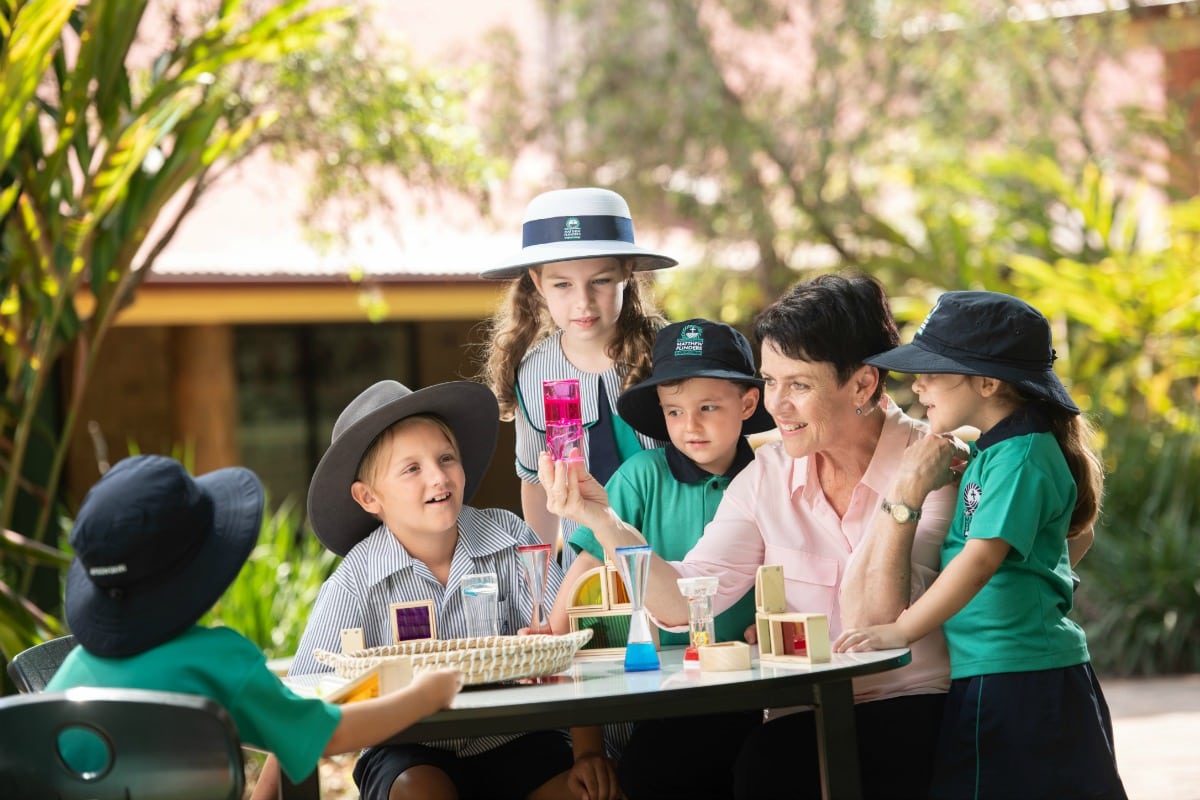How much enjoyment do children get from just playing - running, hiding, chasing, climbing, imagining and role playing? No expensive toys, no electronic games or media, and the only ‘props’ are made from what children find along the way.
Calls and shouts from a group of Year 2 students made me stop and appreciate this very thing last week. Darting, crouching, catching, freezing and escaping were the physical skills used in the game, and there was even a popular playground decision-making strategy of 'scissors, paper, rock' being applied. Watching the group of nine students, I noticed their sheer enjoyment of physical activity and the fun the game provided, not to mention the turn taking, negotiation and problem solving that was taking place. Happy faces, laughter and lively interactions filled the play space as the children applied the rules and collaborated to play a well-thought-out game.
This game clearly illustrated the benefits of play as children applied their social and physical skills to interact positively with peers. It was a strong reminder of the power of play in the development of healthy children. It has been well evidenced that children learn through play, beginning from birth with the ‘serve and return’ interactions between adult and child that feed the development of language and thinking. The American Academy of Pediatrics (AAP), in their clinical report on ‘The Power of Play’ (2018), identifies play as also being beneficial in the area of executive functioning. Described as the process of how we learn, executive functioning skills help a child to ‘switch gears’ when needed. Executive functioning involves three mental processes: working memory, mental flexibility and self-control, and is demonstrated when a person can focus attention, plan, remember instructions or manage multiple tasks successfully. (Centre on the Developing Child, Harvard University)
So, play has many benefits, with this article identifying just a few. The challenge can often be to find or make time for play. Work commitments, co-curricular and after-school enrichment activities, sport, music, along with homework and home responsibilities can all impact on how much time children have to use their imagination and explore their creativity through playing less organised games and activities. The use of media is also a deterrent, with sedentary activities such as spending time on a device replacing active and social play.
Does your child have enough time in their week to just play? What would it take to create more balance and afford the time to play? Parents, of course, can be a part of this play. As well as enjoying yourself, joining in with a child’s play is a valuable way to stay connected and to gain a deeper understanding of how they perceive their world. Brenna Hicks, a mental health counsellor and author at ‘Roots of Action’, states that playing with your child allows a parent to “witness the development of character and personality, problem solving and self-confidence...your child will communicate with you through his imagination and playful experiences in ways he may be unable to do verbally”. Knowing how important the relationship is between a parent and a child, ‘play’ is an easy and convenient vehicle to use to achieve and maintain this bond.
Whether it be climbing trees, a game of hide and seek or hopscotch, skipping, playing UNO, acting out a story, or better still, teaching your child how to play a game you played as a child...create the intention for play to happen. After that, you only need to provide the time and space, and your child will reap the benefits. Join in the fun and then you too get to enjoy the benefits!
Chris Curtain | Head of Junior Primary School
References:
Brenna M, Hicks, Ph.D, “Imagination and Play are Essential to Healthy Childhoods.” 2016. Accessed from www.rootsofaction.com 23 August 2019.
American Academy of Pediatrics, “The Power of Play: A Pediatric Role in Enhancing Development in Young Children.” 2018. Accessed from www.aappublications.org/news 23 August 2019.
Centre on the Developing Child, Harvard University
(developingchild.harvard.edu/science/key-concepts/executive-function)

